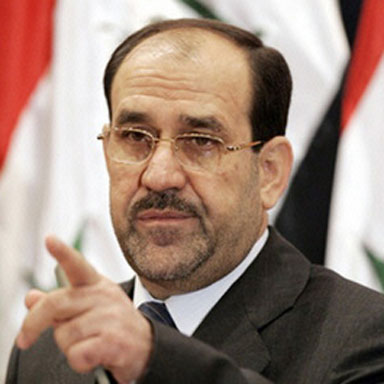
DENVER — Despite optimistic forecasts with Ken Pollack and Michael O’Hanlon in their latest Foreign Affairs piece, Stephen Biddle seems to be parting ways and concluding that Iraqi Prime Minister Nouri al-Maliki’s government has no intention of folding in the Sunni Awakening Councils into the Iraqi military. Yesterday’s LA Times reports:
Amid fears that the Sunnis’ treatment could rekindle Iraq’s insurgency, the Americans are caught between their wish to support the fighters and their stronger ties to Maliki’s government, which has challenged the Sunni paramilitaries in recent months as it grows increasingly confident about its fledgling army.
“We want to have our cake and eat it too, support Maliki and the Sons of Iraq. . . . Maliki wants to make that as hard for us as possible. He wants us to choose him,” said Stephen Biddle, a Council on Foreign Relations defense expert who has served as an advisor on strategy to Army Gen. David H. Petraeus, the U.S. commander in Iraq. “What it looks like we are getting is a Maliki government that won’t behave itself and wants to crush the Sons of Iraq.”
This is confirmed by a series of other reports filed on the ground including experts like Colin Kahl of CNAS who is also reconsidering his former optimism on the subject.
“There’s even some evidence that [al-Maliki] wants to start a fight with the Sons of Iraq,” said Kahl. “Al-Maliki doesn’t believe he has to accommodate these people. He will only do it if we twist his arm to the breaking point.”
Kahl — noting the slowdown in absorption of Sunni militia members into the Iraqi military and the assignment of humiliating jobs to those who were being incorporated into the central government’s payroll – stated:
“The last time we humiliated thousands of these guys is back in 2003, and we got the insurgency.”
Turns out those who have been warning that sectarian tensions still run deep (even if there’s a tactical pause in violence) and preclude the oft-discussed political reconciliation just might be right after all. Most analysts have missed this, looking to problematic barometers like body counts and the passage of central government legislation despite huge implementation gaps.
This ignores crucial sources that are methodologically difficult to process and measure but still critical to fully understanding the bigger picture in Iraq. That is — what people are saying and through that, their intentions for the medium to long term. In this arena, the people seem to be more successful at gauging the temperature are those reporters on the ground able to penetrate the narrative beyond the green zone. More often than not, they are Arabic speakers able to infiltrate different interest groups or militias and get a more accurate read of the country — something I would proffer the O’Hanlons and Pollacks of DC, despite their travels to Iraq, have had a harder time doing. (In fact, Middle East correspondent for The Economist Max Rodenbeck’s scathing review of Ken Pollack’s latest book chastises him for “a lack of genuine intimacy with his subject.”)
Returning to Maliki, poitical theorist Michel Foucault’s inversion of the famous Clausewitz credo — “politics is war by other means” — appropriately describes Malikis tactics. Consolidating power and perpetrating violence through legal means is always more difficult to halt than open violence because it is cloaked in legitimacy.
The reason these revaluations matter is because if the gains over the past 18 months are only surface-level and unsustainable, it dramatically changes the calculus for “winnability” and whether its worth continuing to spend blood and treasure rather than cutting our losses and rebalancing our foreign policy portfolio away from Iraq as Steve Simon, Flynt Leverett, Gen. (Ret.) William Odom, and others have suggested.
Though Sen. John McCain has made clear his policy preferences, there is a battle currently being waged in the Democratic party over the approach to Iraq and picking Sen. Joe Biden as a running mate shows Sen. Obama takes this debate very seriously. Some of these battles may play out over the course of this week as the Democratic policy elite and intelligentsia converge in Denver for a convention as riven over foreign policy as poltical camps.
— Sameer Lalwani


24 comments on “Maliki’s Aproach to Sunni Militias — Politics as War By Other Means”